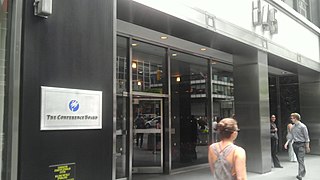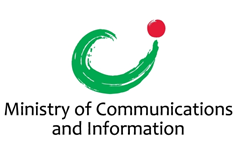Related Research Articles
Convergent Technologies, Inc., was an American computer company formed by a small group of people who left Intel Corporation and Xerox PARC in 1979. Among the founders were CEO Allen Michels, VP Engineering Bob Garrow, head of marketing Kal Hubler, and operating system architect Ben Wegbreit. Convergent was primarily an OEM vendor with their computers resold by other manufacturers such as ADP, AT&T, Burroughs, Four-Phase Systems, Gould, Mohawk, Monroe Data Systems, NCR, and Prime. The company was purchased by Unisys in 1988.
Mulesing is the removal of strips of wool-bearing skin from around the breech (buttocks) of a sheep to prevent the parasitic infection flystrike (myiasis). The wool around the buttocks can retain feces and urine, which attracts flies. The scar tissue that grows over the wound does not grow wool, so is less likely to attract the flies that cause flystrike. Mulesing is a common practice in Australia for this purpose, particularly on highly wrinkled Merino sheep. Mulesing is considered by some to be a skilled surgical task. Mulesing can only affect flystrike on the area cut out and has no effect on flystrike on any other part of the animal's body.

The Ministry of Agriculture, Food and Rural Affairs (OMAFRA) is an Ontario government ministry responsible for the food, agriculture and rural sectors of the Canadian province of Ontario. The Minister is currently Lisa Thompson.
The Agricultural Marketing Service (AMS) is an agency of the United States Department of Agriculture; it maintains programs in five commodity areas: cotton and tobacco; dairy; fruit and vegetable; livestock and seed; and poultry. These programs provide testing, standardization, grading and market news services for those commodities, and oversee marketing agreements and orders, administer research and promotion programs, and purchase commodities for federal food programs. The AMS enforces certain federal laws such as the Perishable Agricultural Commodities Act and the Federal Seed Act. The AMS budget is $1.2 billion. It is headquartered in the Jamie L. Whitten Building in Washington, D.C.

The statutory boards of the Government of Singapore are autonomous organisations that have been tasked to perform an operational function by legal statutes passed as Acts in the Parliament of Singapore. The statutes define the purpose, rights and powers of each authority. These organisations would usually subsequently report to one specific ministry. This list includes both current and new statutory boards formed.

The Conference Board, Inc. is a 501(c)(3) non-profit business membership and research organization. It counts over 1,000 public and private corporations and other organizations as members, encompassing 60 countries.

The Australian Film Commission (AFC) was an Australian government agency was founded in 1975 with a mandate to promote the creation and distribution of films in Australia as well as to preserve the country's film history. It also had a production arm responsible for production and commissioning of films for the government. It was superseded by Screen Australia from 1 July 2008.

The Ministry of Digital Development and Information is a ministry of the Government of Singapore responsible for overseeing the development of the infocomm technology, media and design sectors, as well as the government's information and public communication policies. It is also responsible for maintaining the national library, national archives and public libraries.

The Under Secretary of Agriculture for Farm and Foreign Agricultural Services was the third-ranking official in the United States Department of Agriculture prior to reorganization of several mission areas, announced on May 11, 2017. The mission area of USDA's purpose was to "help to keep America's farmers and ranchers in business as they face the uncertainties of weather and markets..." and that "...deliver[s] commodity, credit, conservation, disaster, and emergency assistance programs that help improve the stability and strength of the agricultural economy." The Under Secretary was traditionally appointed to serve as the President of the Commodity Credit Corporation.
Crown corporations are government organizations in Canada with a mixture of commercial and public-policy objectives. They are directly and wholly owned by the Crown.
The Ministry of Commerce ; abbreviated as MoCom), is a Cabinet-level ministry of the Government of Pakistan concerned with economic growth and commerce development and promotion in Pakistan. The administrative head of the ministry is the Commerce Secretary of Pakistan, presently Muhammad Sualeh Ahmad Faruqi. The political head, Minister of Commerce, is required to be the member of Parliament.
The Ministry of Public and Business Service Delivery and Procurement is a ministry of the Government of Ontario. It is responsible for ServiceOntario, which, among other responsibilities, issues driver's licenses, health cards, birth certificates and other provincial documents to Ontario residents. Additionally, it oversees the Archives of Ontario, Supply Ontario and numerous boards and administrative authorities charged with consumer protection in specific sectors and industries, such as condominiums and travel.
The Sheep Promotion, Research, and Information Act of 1994 enabled domestic sheep producers and feeders and importers of sheep and sheep products to develop, finance, and carry out a nationally coordinated program for sheep and sheep product promotion, research, and information. The program is funded as a commodity checkoff program.
The Ministry of Tourism, Culture and Sport, was created on January 18, 2010 when the Ministry of Culture and the Ministry of Tourism were combined under one ministry. Sport was added to the portfolio in 2011. It is responsible for the development of policies and programs and the operation of programs related to tourism, arts, cultural industries, heritage sectors and libraries, in Ontario. The Ministry works in partnership with its agencies, attractions, boards and commissions and the private sector to maximize the economic, cultural and social contributions of its agencies and attractions, while promoting the tourism industry and preserving Ontario's culture and heritage.

The Industrial Organisation and Development Act 1947 enabled the creation of industrial development boards with powers to raise levies from specific industrial sectors in the United Kingdom for co-ordinated action, particularly in research, marketing and industrial re-organisation. These Boards were to report to the Board of Trade and have equal representation from trades unions and employers alongside independent experts.

Woolmark is a wool industry certification mark used on pure wool products that meet quality standards set by The Woolmark Company. It is a trade mark owned by The Woolmark Company, which has since 2007 been a subsidiary of Australian Wool Innovation Limited (AWI). The logo was launched in 1964 by the Woolmark Company under its previous name, the International Wool Secretariat.
The Ministry of Infrastructure is a ministry responsible for public infrastructure in the Canadian province of Ontario. The current minister is Kinga Surma.

The International Wool Secretariat (IWS) was formed in 1937 to promote the sale of wool on behalf of woolgrowers and review research carried out by independent bodies such as the Wool Industries' Research Association at Torridon, Headingley Lane, Leeds, England.
The South African Wool Board was constituted in 1946 as an independent and non-profit making statutory board under the Wool Act in response to the rapid rise synthetic replacements for natural wool fibre. It was wound up in 1997.
The Department of Commerce and Agriculture was an Australian government department that existed between December 1942 and January 1956.
References
- ↑ Smith, Ailie (16 March 2006). "Australian Wool Board [I] (1936 – 1945)". Encyclopedia of Australian Science. Retrieved 1 August 2016.
- ↑ Smith, Ailie (16 March 2006). "Australian Wool Board [II] (1945 – 1953)". Encyclopedia of Australian Science. Retrieved 1 August 2016.
- ↑ Smith, Ailie (16 March 2006). "Australian Wool Board [III] (1963 – 1972)". Encyclopedia of Australian Science. Retrieved 1 August 2016.
- ↑ "Australian Wool Board [III]". National Archives of Australia. 20 May 1977. Retrieved 1 August 2016.
- 1 2 3 4 5 Commonwealth Bureau of Census and Statistics (1972). Official Year Book of the Commonwealth of Australia, No. 58. Canberra. p. 800.
{{cite book}}: CS1 maint: location missing publisher (link) - ↑ Roche, Julian (1995). The international wool trade. Cambridge, England: Woodhead Pub. Ltd. p. 176. ISBN 1855731916.
- ↑ Milestones – a brief history of the Australian wool industry